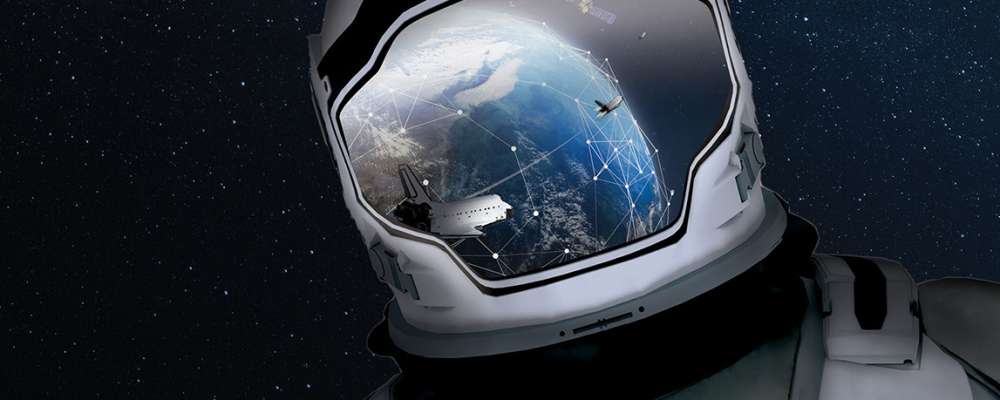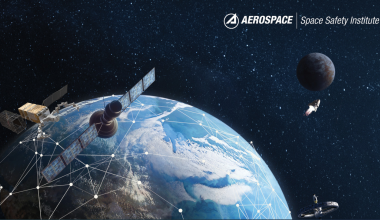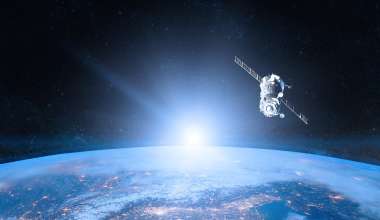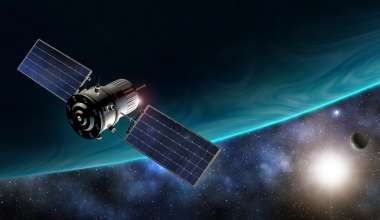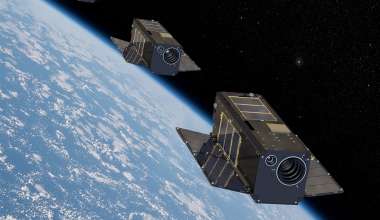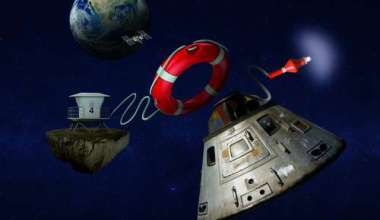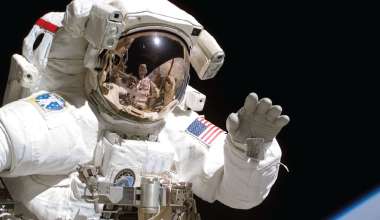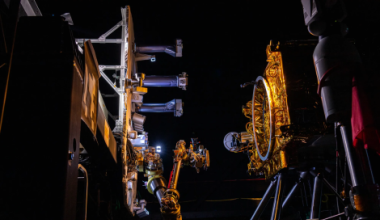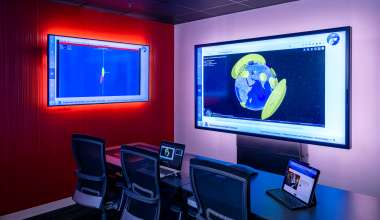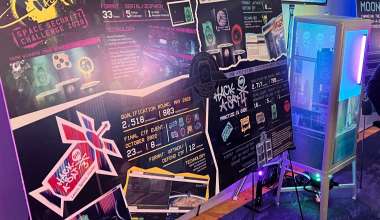SSI experts regularly provide their insights through publications, interviews and other resources to support informing and educating the public and key decisionmakers on these topics.
| Title | Authors | Description | Date |
|---|---|---|---|
| 2022 Space Safety Compendium | Samira Patel, Josef S. Koller |
The Space Safety Institute (SSI) leverages longstanding Aerospace expertise on issues of space safety to provide more targeted and impactful thought leadership across the range of challenges described in this 2022 Space Safety Compendium. Each chapter of this compendium describes key high priority areas that should be addressed over the next few years. The compendium has been developed in collaboration with The Aerospace Corporation’s Center for Space Policy and Strategy, and builds on material from previously published policy papers, referenced throughout each chapter, as a foundation for this compendium. Aerospace's experts also discussed the Space Safety Compendium on The Space Policy Show. Watch the full episode here. |
Updated April 2023 |
| Commercial Human Spaceflight Safety Regulatory Framework | Josef S. Koller, Samira Patel, Angie Bukley, Stephanie Barr, Lee Graham, Robert Seibold, Catrina Melograna |
Produced by Aerospace's SSI, this report presents a recommended framework for commercial human spaceflight safety based on an analysis of other transportation sectors, identification of common safety components, and a roadmap that leads to an ideal future where human spaceflight is a common practice. This takes into consideration current and future commercial activities regardless of the development status of individual spaceflight companies. The developed safety framework is flexible in order to recognize new developments, new transportation mechanisms, and new spaceflight destinations as they emerge. The report describes activities promoting these three common components and provides additional aspects for an effective and comprehensive safety framework, including a safety management system, safety case approaches, and other long-term considerations. The report concludes with a roadmap and a recommended timeline for implementation. |
September 28, 2022 |
| Space Traffic Management Terminology | Mark Skinner | Space traffic management (STM) terminology is not universally harmonized today. The lack of a shared vocabulary stems from the continued evolution of the STM and space traffic coordination (STC) concepts. A shared vocabulary supports accurate comprehension and thus eases efficient communication. Space is international in nature, and, for managing and coordinating space traffic, a standardized vocabulary is necessary for the various actors in the space arena to achieve success. In this paper, we summarize the significance of effective STM, present the causes of the variance in terminology, and highlight the challenges to reaching consensus. By sharing with other stakeholders, we intend to foster consensus and encourage the use of these terms and definitions in international guidelines, standards, and agreements across the community. | Oct 25, 2022 |
| The In-Space Rescue Capability Gap | Grant Cates |
The lessons of Apollo, Skylab and the space shuttle with respect to the rescue of astronauts in space seem to have been forgotten as the United States enters a new era of space flight that includes commercially provided spacecraft, space tourism, and the return of U.S. astronauts to the moon. The present posture, of not planning for in-space rescue and not having responsive in-space rescue capabilities, needs to be addressed before the need for a rescue materializes. The U. S. has the wherewithal to establish space rescue capabilities and to do so with a sense of urgency. This paper seeks to raise awareness of the need to revisit space rescue policies and close capability gaps. Hear from experts on this topic in E68 of #TheSpacePolicyShow |
Jul 29, 2021 |
| Policy Compliance Roadmap for Small Satellites | Barbara Braun, Sam Sims |
Today, the space enterprise encompasses many players and stakeholders, including small businesses, universities, affinity organizations, and even primary schools. This paper explores U.S. space policies and how they apply to satellite missions that may not fit the “typical” mold on launch missions that may not have a single responsible agency. Where applicable, we have outlined the processes and approvals involved in getting to space. In addition, we have identified where further work is required to fill in policy gaps and “gray areas” in the overall policy picture. Hear from the authors on this topic and more on an episode of #TheSpacePolicyShow |
Sep 13, 2022 |
| Space Policy Show #106: Guiding the Future of Spaceflight Safety | Samira Patel, Dr. Josef Koller |
More traffic on the road means more rules to protect drivers – the same is true for the space domain. With more actors, larger constellations, and expanding human space flight – there needs to be greater attention to safety in space if we are to continue reaping benefits from space. The Aerospace Corporation’s Space Safety Institute has issued a collection of research and writings that encompass: space situational awareness, launch and reentry, cyber security and spectrum allocation, and human space flight. This episode features experts Samira Patel and Dr Josef Koller discussing the Space Safety Compendium, and special appearances from our deeply knowledgeable Aerospace experts. Read some highlights of the Compendium in this SpaceNews article by Jeff Foust "Report offers wide-ranging recommendations on space safety". |
October 20, 2022 |
| Space Policy Show #92: Space: Safe, Secure and Sustainable | Colleen Stover, Dr. Angie Bukley, Krystal Azelton, Jacob Geer | What is our responsibility to keep the space environment sustainable for future generations? From space traffic management (STM) to banning debris-creating anti-satellite weapons tests (ASATs), space actors from all over the world are working to keep space useable for the common good. Join Dr. Angie Bukley, Principal Engineer at Aerospace’s Center for Space Policy & Strategy, as she talks to Krystal Azelton (Director of Space Applications Programs, Secure World Foundation) and Jacob Geer (Head of Space Surveillance and Tracking, United Kingdom Space Agency) about their joint efforts to bring top experts together to understand the issues and find solutions. | May 19, 2022 |
| Space Policy Show #75: Learning the Risks of Long-Duration Human Space Flight | Ashley Kowalski, Paul Frakes | How does NASA help prepare for astronauts to remain in isolation and confinement for long-duration space flight to Mars? Enter SIRIUS-21 – an 8 month analogue mission that will conduct physiological and psychological experiments with an international crew from the US, Russia and the United Arab Emirates. The Scientific International Research in Unique Terrestrial Station (SIRIUS) project will use virtual reality in an environment of sensory deprivation and limited resources; the team will live just like astronauts while performing a number of behavioral and performance experiments. |
November 04, 2021 |
| The Space Policy Show #68: Space Rescue | George Nield, Grant Cates, Kreston Barron |
In-space rescue of distressed spacecraft in low earth orbit, or anywhere else in space, has limited capabilities today. Without rescue plans in place, today’s space travelers will journey at their own risk. Listen to experts George Nield (former FAA) and Grant Cates (Aerospace) talk to Kreston Barron of The Center for Space Policy & Strategy about how commercial spaceflight providers and US policymakers could help improve the safety of space travel. To read more on this topic, read Cates' newly released paper "The In-Space Rescue Capabilities Gap". |
July 29, 2021 |
| The Space Policy Show #14: The Human Side of Space | Dr. Kris Lehnhardt, Kara Cunzeman, Dr. Angie Bukley | The Space Policy Show is pleased to hear from Dr. Kris Lehnhardt, from NASA's Human Research Program, and Aerospace's own Kara Cunzeman and Dr. Angie Bukley. This episode discusses the elements that make human space exploration uniquely challenging. Why is space so hard on humans? What would it take to sustain human life in space? | May 07, 2020 |
| Space Policy Show #6: Space Grows Faster When It's Safer: Safety and Sustainability | George Nield, Josef Koller | The Space Policy Show is pleased to hear from Former FAA Associate Administrator, George Nield, and host Josef Koller (Aerospace) about the safety and sustainability of space. How can focusing on spaceflight safety prompt the space industry to grow faster? How can regulators create a foundation of safety standards in this "wild west" sector? What role does space traffic management play in spaceflight safety? Watch this episode to find out. | April 09, 2020 |
